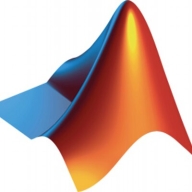

MathWorks Matlab and Dremio are competing products in the data analytics and processing field. MathWorks Matlab seems to have the upper hand in terms of support and pricing, while Dremio stands out for its advanced features and overall value.
Features: MathWorks Matlab offers features such as advanced mathematical modeling, simulation capabilities, and specialized toolboxes for scientific and engineering applications. Dremio provides powerful tools for data lake exploration, high-speed query performance, and seamless integration with cloud storage.
Ease of Deployment and Customer Service: Matlab's deployment is streamlined with extensive documentation and robust customer service, ensuring smooth integration into existing workflows. Dremio's deployment model is distinct with its focus on cloud-native environments, enabling scalable and flexible data infrastructure setups. Dremio also offers strong customer service.
Pricing and ROI: Matlab's setup cost is often higher due to its proprietary nature but yields returns in high-precision modeling and extensive functionality. Dremio presents a cost-effective solution with open-source components, which can lead to higher ROI in large-scale data environments, delivering a cost-efficient alternative suited for broad data exploration needs.


Dremio is a data analytics platform designed to simplify and expedite the data analysis process by enabling direct querying across multiple data sources without the need for data replication. This solution stands out due to its approach to data lake transformation, offering tools that allow users to access and query data stored in various formats and locations as if it were all in a single relational database.
At its core, Dremio facilitates a more streamlined data management experience. It integrates easily with existing data lakes, allowing organizations to continue using their storage of choice, such as AWS S3, Microsoft ADLS, or Hadoop, without data migration. Dremio supports SQL queries, which means it seamlessly integrates with familiar BI tools and data science frameworks, enhancing user accessibility and reducing the learning curve typically associated with adopting new data technologies.
What Are Dremio's Key Features?
What Benefits Should Users Expect?
When evaluating Dremio, potential users should look for feedback on its query performance, especially in environments with large and complex data sets. Reviews might highlight the efficiency gains from using Dremio’s data reflections and its ability to integrate with existing BI tools without significant changes to underlying data structures. Also, check how other users evaluate its ease of deployment and scalability, particularly in hybrid and cloud environments.
How is Dremio Implemented Across Different Industries?
Dremio is widely applicable across various industries, including finance, healthcare, and retail, where organizations benefit from rapid, on-demand access to large volumes of data spread across disparate systems. For instance, in healthcare, Dremio can be used to analyze patient outcomes across different data repositories, improving treatment strategies and operational efficiencies.
What About Dremio’s Pricing, Licensing, and Support?
Dremio offers a flexible pricing model that caters to different sizes and types of businesses, including a free community version for smaller teams and proof-of-concept projects. Their enterprise version is subscription-based, with pricing varying based on the deployment scale and support needs. Customer support is comprehensive, featuring dedicated assistance, online resources, and community support.
We monitor all Data Science Platforms reviews to prevent fraudulent reviews and keep review quality high. We do not post reviews by company employees or direct competitors. We validate each review for authenticity via cross-reference with LinkedIn, and personal follow-up with the reviewer when necessary.